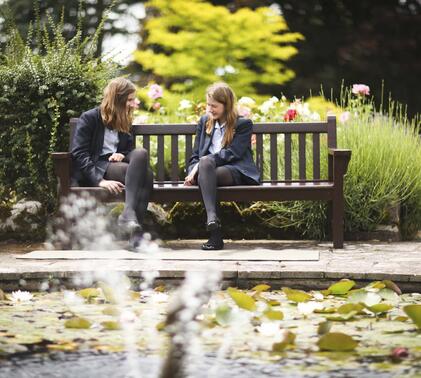
Love thy neighbour
We were all shocked and saddened by the attacks on Paris that took place in November. There are several staff and students at our school with friends and family in the Paris area and so the concern for their safety in the aftermath of the shootings was keenly felt. These events, following so quickly on the back of the bombing in Beirut and the downing of the Russian airliner over the Sinai desert serve as a constant reminder not just of man’s inhumanity to man, but of the complicated nature of the geopolitical world in which we live.
When faced with such complexities it is easy to feel overwhelmed and indeed when speaking to students afterwards some felt just that. However. I was greatly encouraged by listening to a guest who came to school the week following the events in Paris to give a talk as part of our ‘Let Your Life Speak’ series organised through our Centre for Peace and Global Studies. Entitled ‘Love thy neighbour? The horrors of the Bosnian genocide, one woman’s story’, Jennifer Stone-Wigg spoke of the work she has done in the wake of the atrocities in Bosnia and Herzegovina. Jennifer set up the charity Swiss Help for Peace in the 1990s and continues to work with those in difficulty: children, the sick, the elderly, war veterans and anyone else who has been hit by hardship. She was inspiring! A lady now well into old age, who heeded her own call to action and remains committed to doing what she can to relieve the suffering of others. To all those fortunate enough to hear her, Jennifer was an object lesson in the power of the individual to make a positive difference in the world, even in the face of overwhelming odds and I can’t help but wonder how many of our students will be telling similar stories in the years to come.
As the term draws to a close, we start to think about the holidays and Christmas. Traditionally a time for friends and family, it is also an opportunity to reflect on the world around us; giving thanks for what we have and thinking about those less fortunate, perhaps in our own community or further afield. It may also be a time consider what peace means. Is it a state or a process? How are we going to find ways of settling differences in a non-violent manner? Is the killing and loss of life that has characterised this year an inevitable consequence, or is there a way of challenging such orthodoxy? Big questions to consider – yes. But I don’t think that the status quo is sustainable and, therefore, there needs to be creative discussion around how things can change and what that change looks like. I can think of nothing of greater importance for schools to take into the New Year. After all, it is the generation we are currently educating who will need to take a lead in shaping a better, sustainable, peaceful future.
IWK – December 2015

